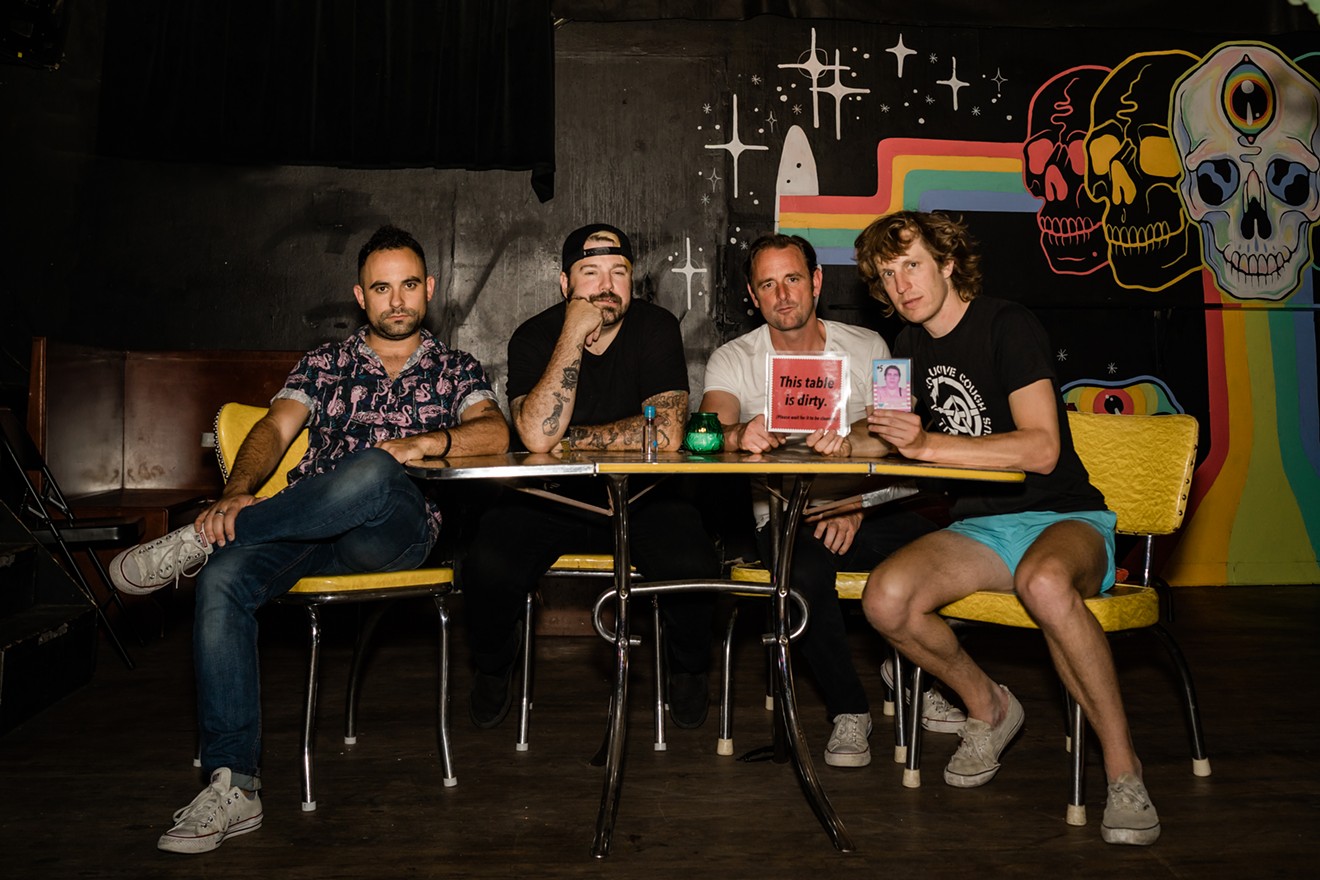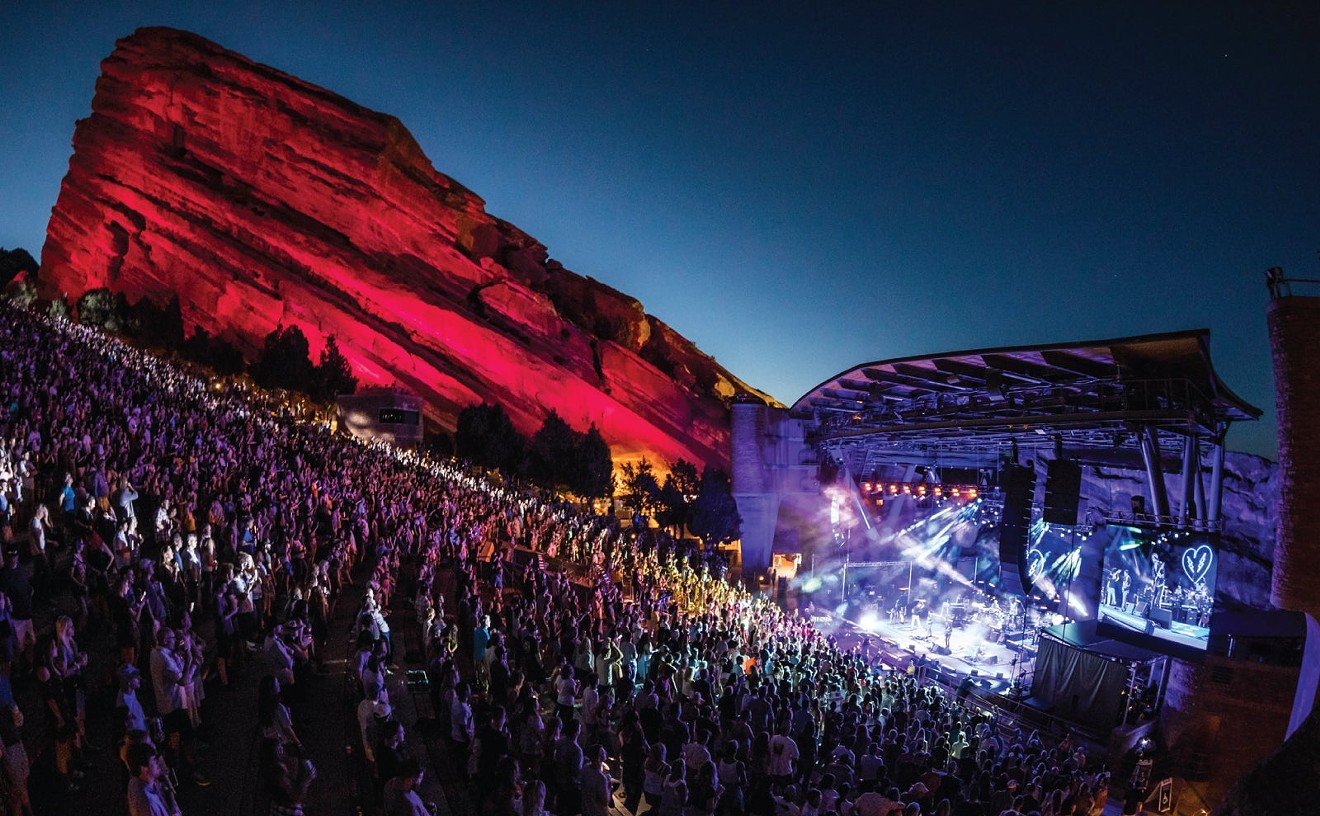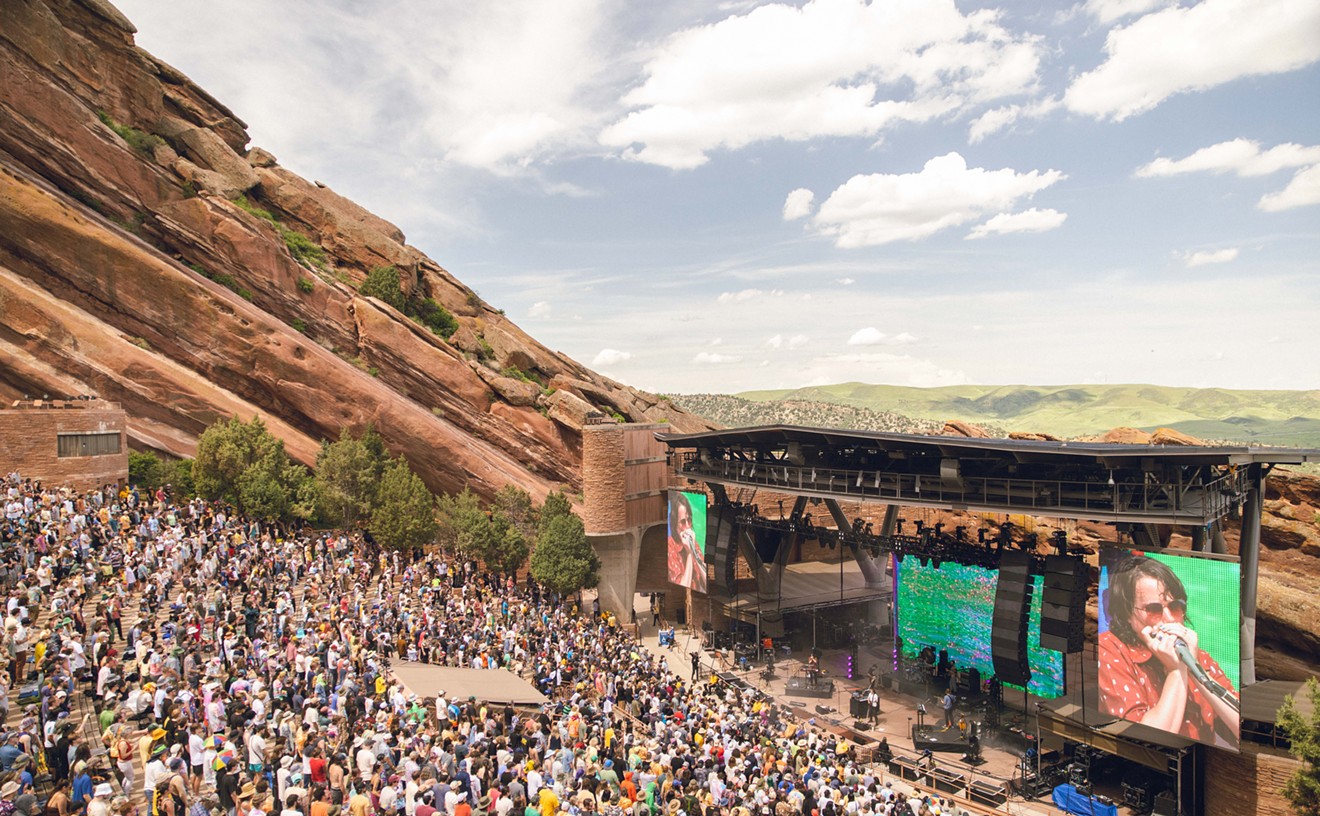Since forming eight years ago, the guys in Bud Bronson & the Good Timers have gotten the question more than once: “Who is Bud Bronson?”
Nobody in the Denver rock band actually goes by the name. In the outfit's early days, frontman Brian Beer saw Bud Bronson as a mythic invincible character in the vein of Evel Knievel or the Marlboro Man. “I think that was really hilarious or cool when we were in our early twenties. As time goes on, I don't even think about the name anymore — although I'm sure to someone who's never heard us, it sounds kind of like a joke or an ironic thing, which is not how our music is these days.”
While Beer admits that the band’s past few albums were about youthful indulgences and partying, its new EP, Manifest Fantasy, which dropped November 13, is a more sober look at the world and the bandmembers’ place in it.
“Obviously, the world right now is just ripe for talking about,” Beer says. “We've always been really kind of like an American band invested in those tropes in a really celebratory way, but the pandemic has exposed a lot of the dangers of the mythology that we are born into here in horrifying ways — like people not wearing masks. Nothing is more important than our individual freedom, even if exercising that freedom literally puts other people's lives at risk. The social climate right now is just kind of hard to ignore, and so it's definitely showing up in the music.”
Manifest Fantasy deals with the war between escapism and reality, the promise and emptiness of idealism, the false safety of the past versus fear of the future. It touches on some heavy subject matter lyrically, and musically the band veers heavier as well — something Beer attributes to new bassist and hi-dive co-owner Matty Clark's influence on the group since he joined late last year.
“I think Matty brought in this license to feel more like, ‘Oh, we can do more Iron Maiden and heavier stuff.’ We just felt emboldened to open up that category.”
Bud Bronson was built on a foundation of the ’70s rock of Thin Lizzy and Boston, the kind of music Beer says that you’d play on a dive-bar jukebox when you wanted to feel great. The band also took cues from Weezer and Titus Andronicus, gradually working punk and metal into the mix.
The songs on Manifest Fantasy still feel like classic Good Timers cuts, with big anthemic sections, dueling guitar solos and twin guitar harmonies from Beer and Luke Gotlieb, all fueled by Forrest Bartosh’s muscular drumming — but Clark says they’re elevated versions of earlier material.
For example, while the triumphant “Post-Rock USA” might revisit the band in its youngest, most idealistic incarnation, classic-rock passage and all, the lyrics are about how hope gives way to disillusionment. The sound is wider and heavier, and it hits harder musically than the band's earlier efforts.
Beer notes that “Life Is a Highway (to Hell),” also on the new EP, uses classic-rock mythology “to paint a stark contrast between the feel-good hits of yesteryear and the bleakness of our current social landscape.”
Although much of Manifest Fantasy reflects the dystopian nightmare of the pandemic, the bandmates actually started writing songs for it last fall and winter. Before COVID hit, they booked time with Chris Fogal at his studio, Black in Bluhm.
“It was so interesting that so many of the themes on the album were parallel with what was happening in the world at that time,” Gotlieb says.
Beer agrees, noting that a lot of the ideas and situations touched on in the EP were in place before COVID-19.
“It's truly terrifying the way that people can twist reality to suit their own worldview rather than take an honest look at themselves before their values, their beliefs, how their actions impact others,” he says. “Even pre-pandemic, I think our inability to self-reflect honestly and acknowledge these hard truths was there — and if we don't fix that, that doesn't really bode well for us as Americans or humans in the long term.”
Once the bandmates were finally able to get into the studio in June, Gotlieb says, recording the album felt like a safe haven from all the madness: “It was the one place we could go to be with each other and be creating this music with such a cathartic release from the darkness."
“It felt like doing something normal,” adds Clark.
The bandmates tried to balance out the brutality of the moment with some sense of hope while making the EP, but Beer says it was hard to do.
“You can't fully just block out everything right now — it's just too much,” he says. “How do you acknowledge it and make sense of it in a way that feels accurate? I don't know. I guess it feels cathartic to rage about it a bit, but I was also trying to find any way for hope. Or if not, hopefully maybe this acceptance.”
“Final Fantasy: Infinity,” the last cut on the album, “forsakes self-reflection and embraces the chaos, trading white-knuckled fear of the future for a full acceptance of the absurd and uncontrollable nature of human existence,” explains Beer.
While the pandemic might end and there will be a new president, Beer points out that the divisive world we live in is not going away.
“The way people talk to each other and the way people choose to believe what they want to believe rather than acknowledging the stuff that needs to be acknowledged — that is stuff that brings down civilizations," he says. "We're going to have to find a way to confront that.”
Listen to Manifest Fantasy here.
[
{
"name": "Air - MediumRectangle - Inline Content - Mobile Display Size",
"component": "12017618",
"insertPoint": "2",
"requiredCountToDisplay": "2"
},{
"name": "Editor Picks",
"component": "17242653",
"insertPoint": "4",
"requiredCountToDisplay": "1"
},{
"name": "Inline Links",
"component": "18838239",
"insertPoint": "8th",
"startingPoint": 8,
"requiredCountToDisplay": "7",
"maxInsertions": 25
},{
"name": "Air - MediumRectangle - Combo - Inline Content",
"component": "17261320",
"insertPoint": "8th",
"startingPoint": 8,
"requiredCountToDisplay": "7",
"maxInsertions": 25
},{
"name": "Inline Links",
"component": "18838239",
"insertPoint": "8th",
"startingPoint": 12,
"requiredCountToDisplay": "11",
"maxInsertions": 25
},{
"name": "Air - Leaderboard Tower - Combo - Inline Content",
"component": "17261321",
"insertPoint": "8th",
"startingPoint": 12,
"requiredCountToDisplay": "11",
"maxInsertions": 25
}
]












